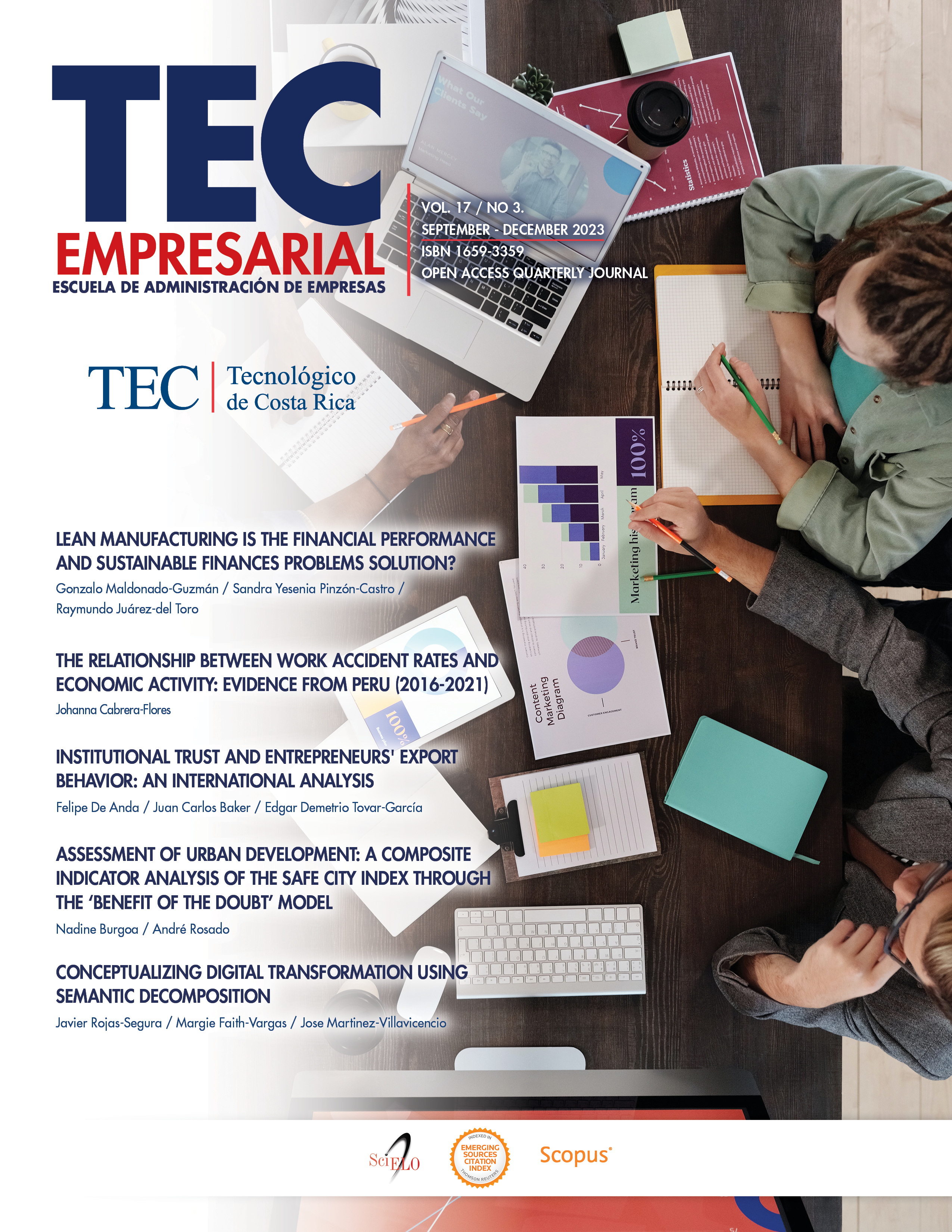Assessment of urban development: A composite indicator analysis of the safe city index through the ‘benefit of the doubt’ model
Main Article Content
Abstract
This study employs the ‘benefit of the doubt’ (BOD) weighting model to build a composite indicator to evaluate urban development in 60 cities located around the world for 2021. The results of the empirical application based on the data provided by The Economist (i.e., safe city index) reveal the informative power of the proposed composite indicator, relative to models using equal weight restrictions. Findings indicate that there are significant efficiency differences among the analyzed cities, and that cities follow different strategic pathways when it comes to design urban policies. This suggests that there is much scope for strategic and effective support policy in many cities. The results of the study highlight that an analysis based on the BOD approach may offer useful information to policy makers on what strategic actions may potentially optimize the allocation of local resources and, subsequently, enhance urban development.
Article Details
The digital version of the journal is registered under the BY-NC-ND 4.0 Creative Commons license. Therefore, this work may be copy and redistribute the material in any medium or format, as long as you give appropriate credit, provide a link to the license, and indicate if changes were made. You may do so in any reasonable manner, but not in any way that suggests the licensor endorses you or your use.
The authors keep the copyright and give the journal the right of the first publication and the possibility of editing, reproducing, distributing, exhibiting and communicating in the country and abroad through printed and electronic means. On the other hand, the author declares to assume the commitment on any litigation or claim related to the rights of intellectual property, exonerating of responsibility to the Business School of the Costa Rica Institute of Technology.


